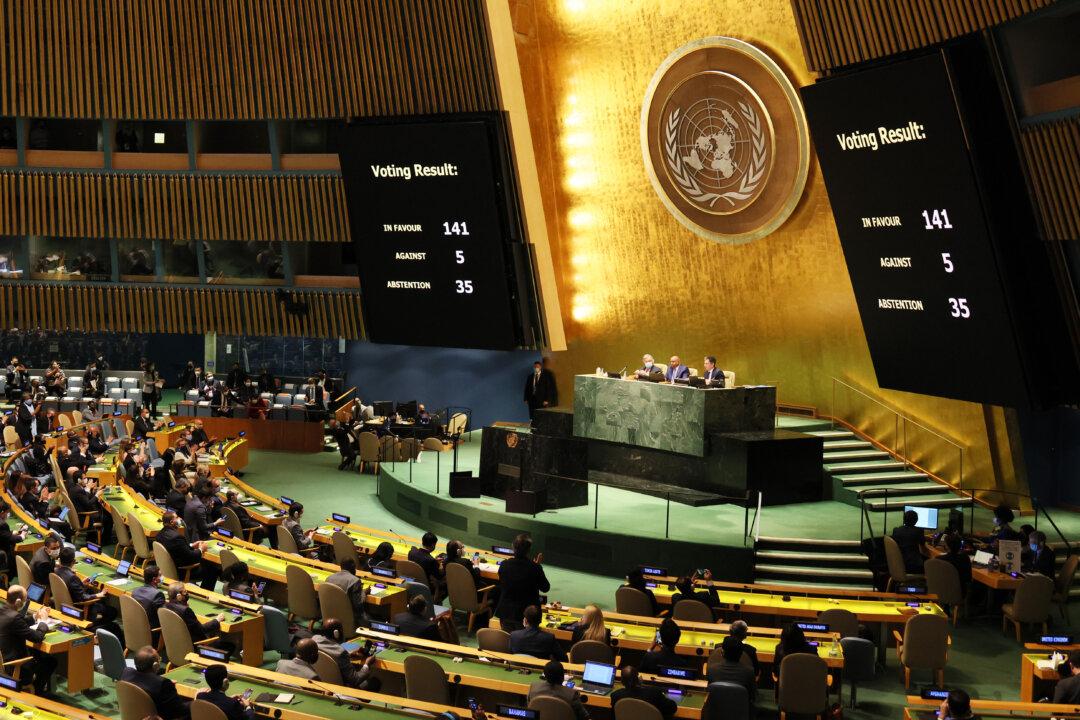The president of the United Nations General Assembly said on Jan. 29 that the 15-member Security Council (UNSC) is “paralyzed” and cannot perform its basic function of maintaining peace amid Russia’s invasion of neighboring Ukraine.
Csaba Korosi made the comments to the Indian news agency PTI after touching down in the nation on Sunday ahead of a three-day visit; an invitation from India’s External Affairs Minister Subrahmanyam Jaishankar.




